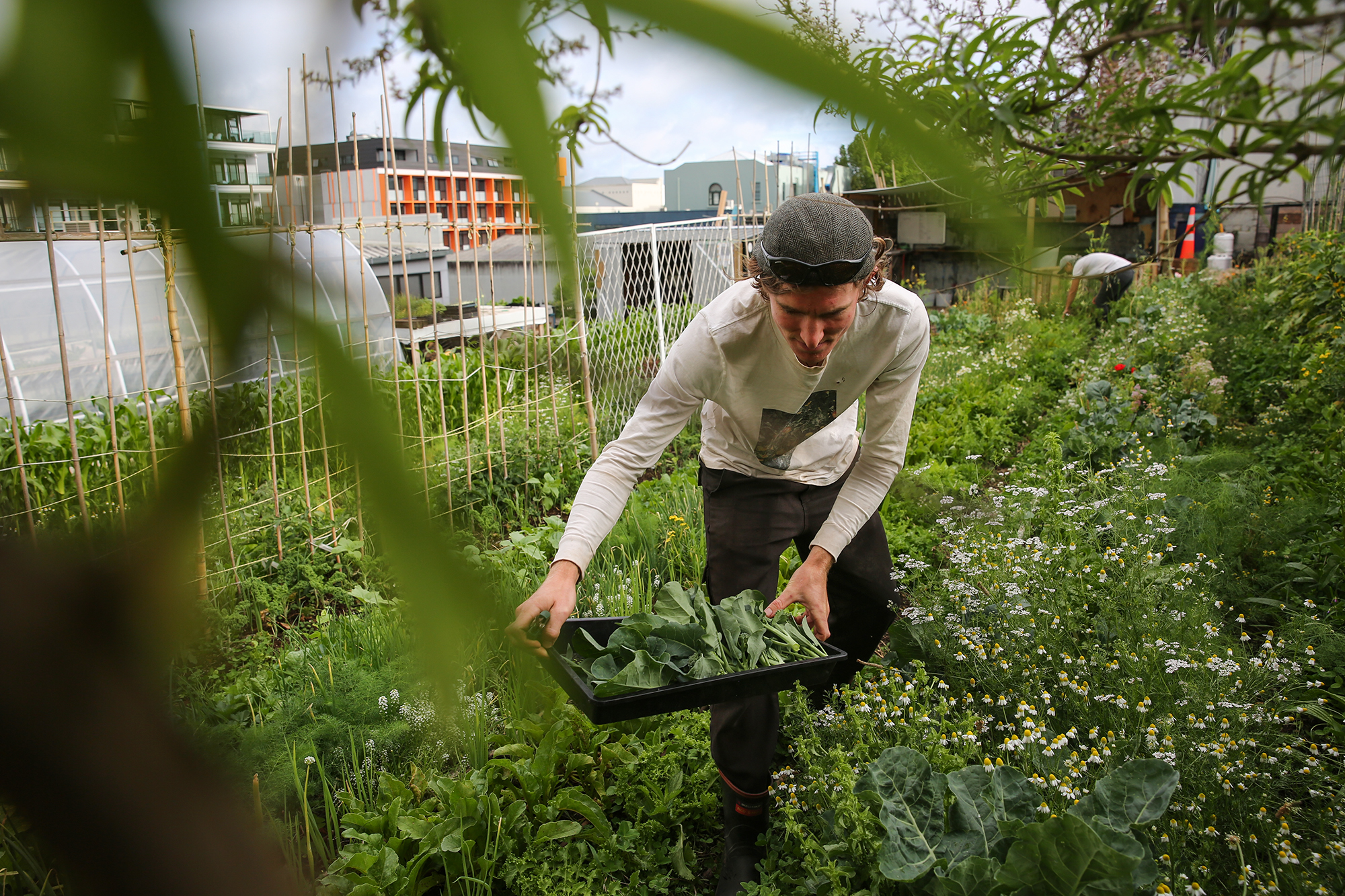
Urban regenerative farmer Levi Brinsdon-Hall reckons it’s a corn season this summer.
When pressed for reasons – is it a particularly good season for corn? Will the wind be at the right angle? – he laughs and says he’s just decided it’s his plant right now.
The reason Levi has the luxury of getting to experiment growing pretty much whatever he wants is because he’s farming small-scale regeneratively.
If the corn crop fails he’s growing thirty other crops – at the same time, on 310 square metres deep in the heart of Tāmaki Makaurau (Auckland), around the corner from Queen Street.
As he explains to me, “with diversity you get strength.”
Brinsdon-Hall runs Organic Market Garden (OMG) farm – a tiny-yet-mighty market garden on Symonds Street in Auckland Central that is the work of For the Love of Bees; a bee-loving ecological initiative aiming to increase bee populations and promote healthy ecology across the city. They’re supported by the Link Alliance in the form of land provision, and share their learnings with other kai-growing organisations across Tāmaki Makaurau and Aotearoa.
OMG farm was set up as an experiment to show the huge potential of underutilised inner-city spaces to generate value for the local community and environment.
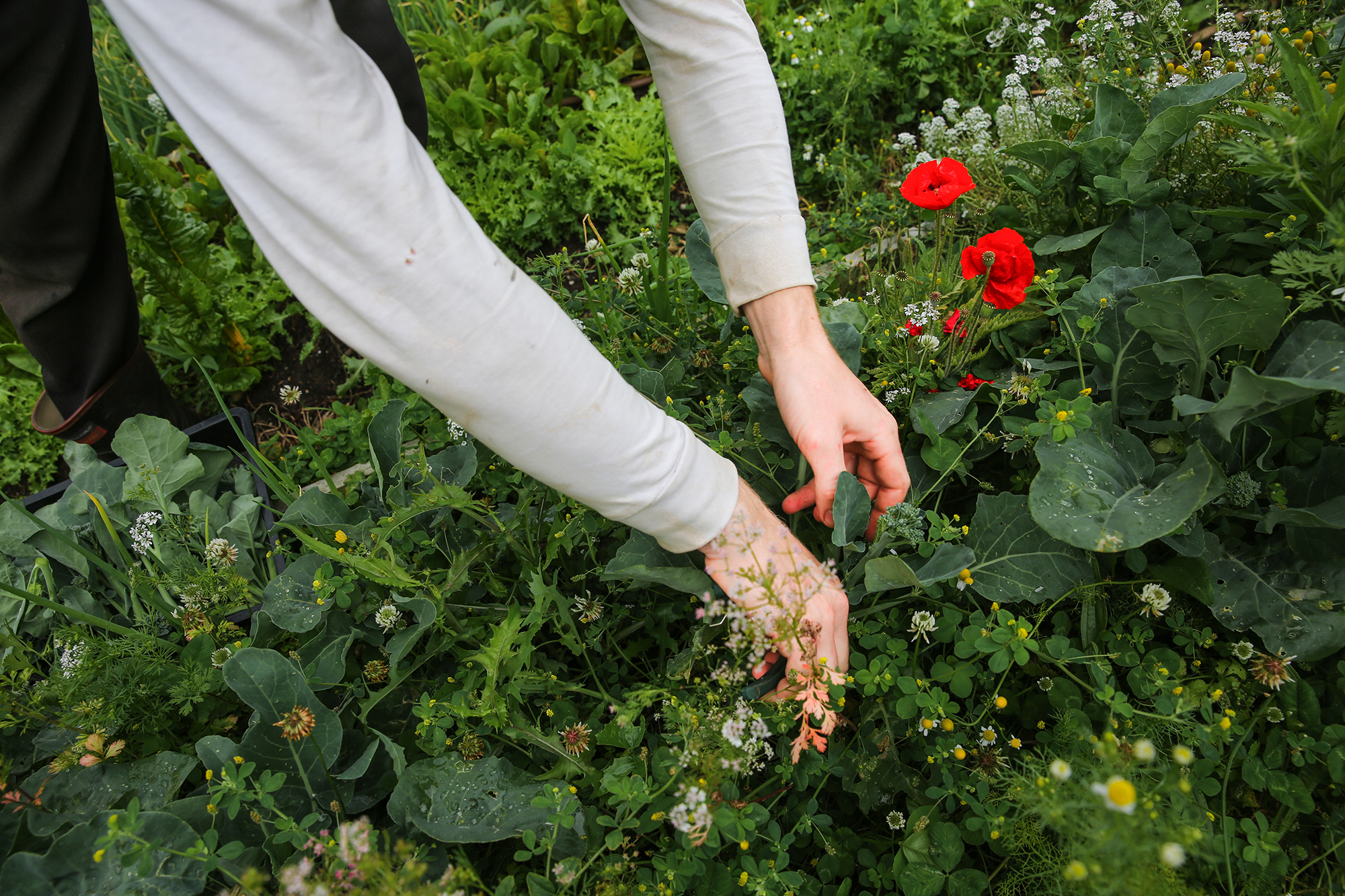
“A big reason for starting the project was to prove that small scale agriculture in an urban context is not only highly possible – it can grow food to feed multiple people off a very small section,” says Brinsdon-Hall.
As I walk through the gate to the farm my senses experience sights and smells I usually don’t find in the city. There’s a comforting aroma of chamomile, bumble bees hovering in some stray poppies and beautiful blue borage plants growing amongst rows of turnips and hanging zucchini vines.
The soil looks healthy and full of plants, worms and – I can’t see them of course, but I believe they’re there – soil microbes.
As well as increasing insect population and drawing down carbon to lock into the soil, the farm sells organic vegetable boxes to the local community, feeding forty different households a week on a farm the size of a small car park.
“People are really happy because we harvest the vegetables for them fresh on a Tuesday or a Friday and they come in and pick up their vegetables.”
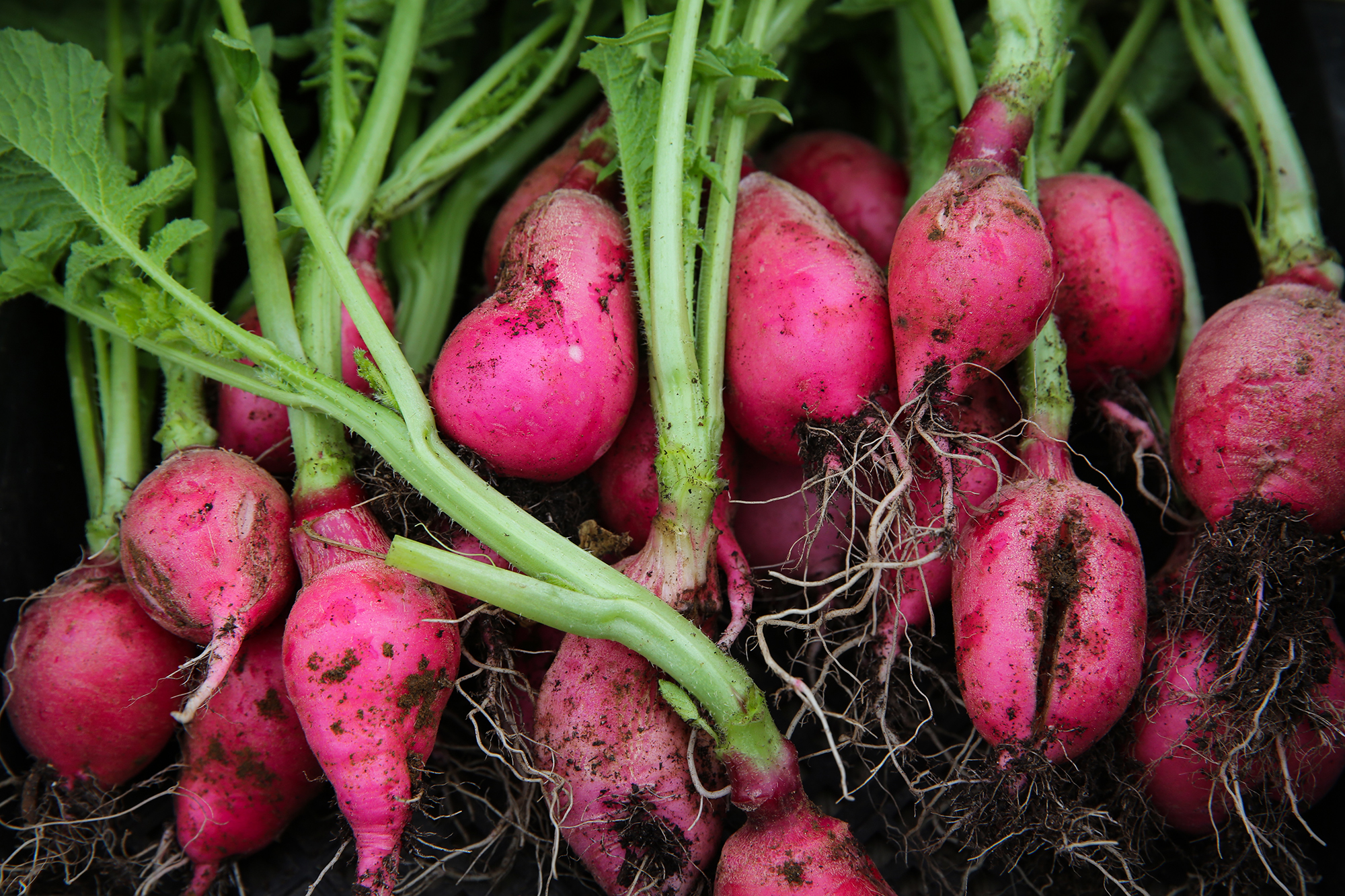
OMG farm uses a CSA-style model (Community Supported Agriculture) whereby households or families subscribe to a weekly veggie-box for a season of three months.
This means the grower knows how much funds they’ll have throughout the season and can afford to experiment and grow a diverse range of crops, and the buyer gets a weekly box of nutrient-dense vegetables, grown (almost) in their backyard.
“It’s a completely different way to do a business model – it’s limited which means it’s not seeking exponential growth, it’s seeking to be infrastructure for a specific community in a specific place with no petrol miles and no packaging,” Brisdon-Hall says.
“You don’t need a lot of space, they’re community centres and they’re climate change infrastructure, so not only are they the best thing we could have at capturing carbon, but at the same time it’s feeding people food that’s going to make them healthy.”
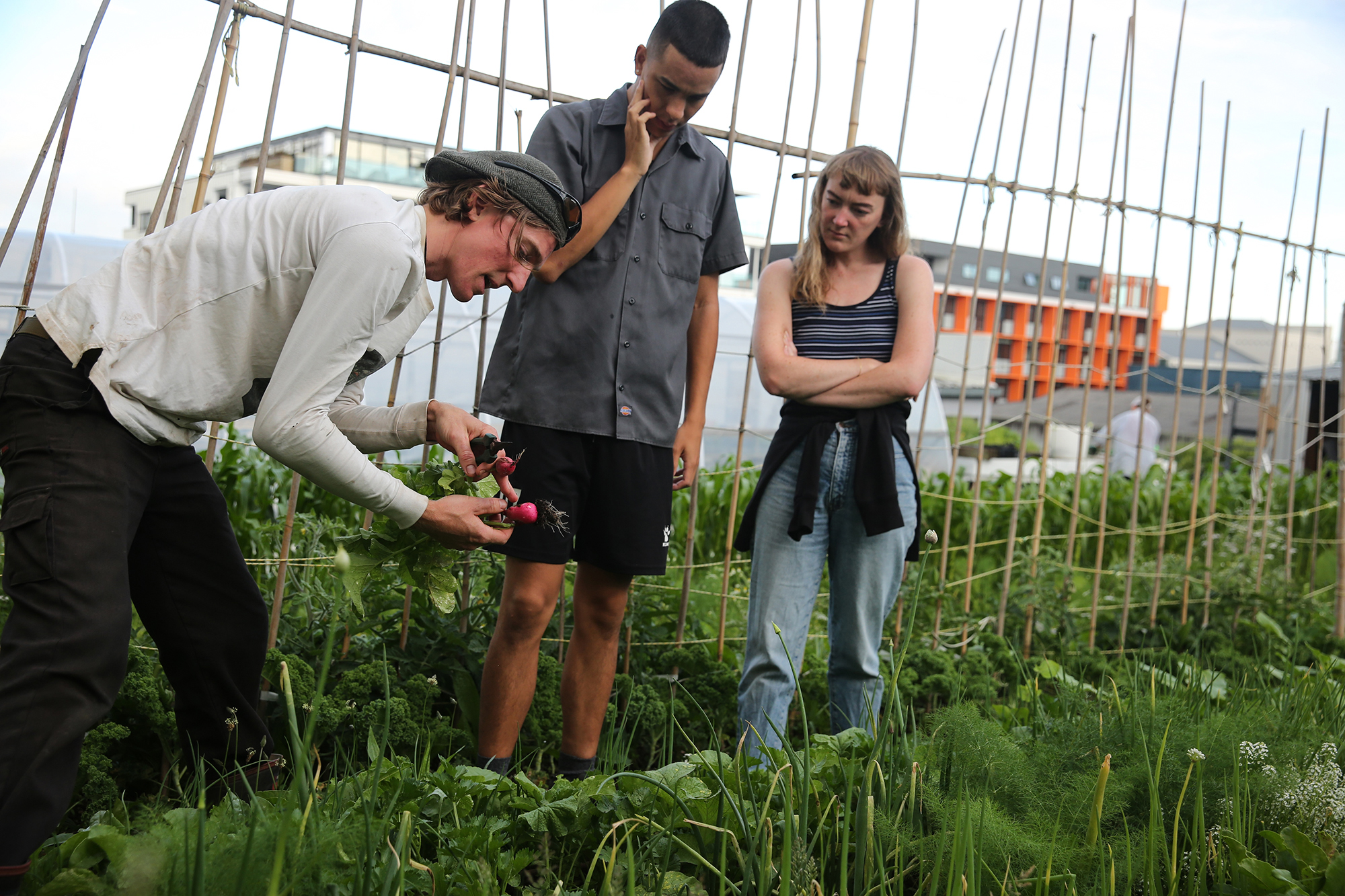
The farm uses regenerative growing practices such as no-dig (where the soil doesn’t get tilled to promote healthy soil microbes and fungi) and companion planting.
“In summertime most of our rows have between five and seven species growing in them all together as a guild, so we get to grow kind of everything!”
“We do a lot of companion planting; eggplant with coriander, beetroots with spring onions – and [this summer] I’m looking to get lots of shade and height in the garden.”
“It is insanely good for insects and pollinators and birds and all the ecology, and then you have this whole new wave that it is community infrastructure – people can come and learn, they have a space to come and hang out – sometimes it feels like a community hall.”
“When it’s in such an urban area, people get to see [farming] and experience it and embody it… which is really powerful in a world where there is so much disconnection,” Brinsdon-Hall says.
“[Small-scale urban farms] are infrastructure that can impact the health of the planet on so many levels, and this is why we’re doing it.”
There was never a more pertinent time for creating resilient food systems, with the world still reeling from the impacts of a global pandemic, facing recession and the climate crisis.
“The only thing that changed for us [during lockdown] was that we had more demand – we were sorted because we had a community we were growing for and it just felt so solid to have a pandemic happen and to see we had resilience… that’s when I knew this is why we’re doing what we’re doing.”
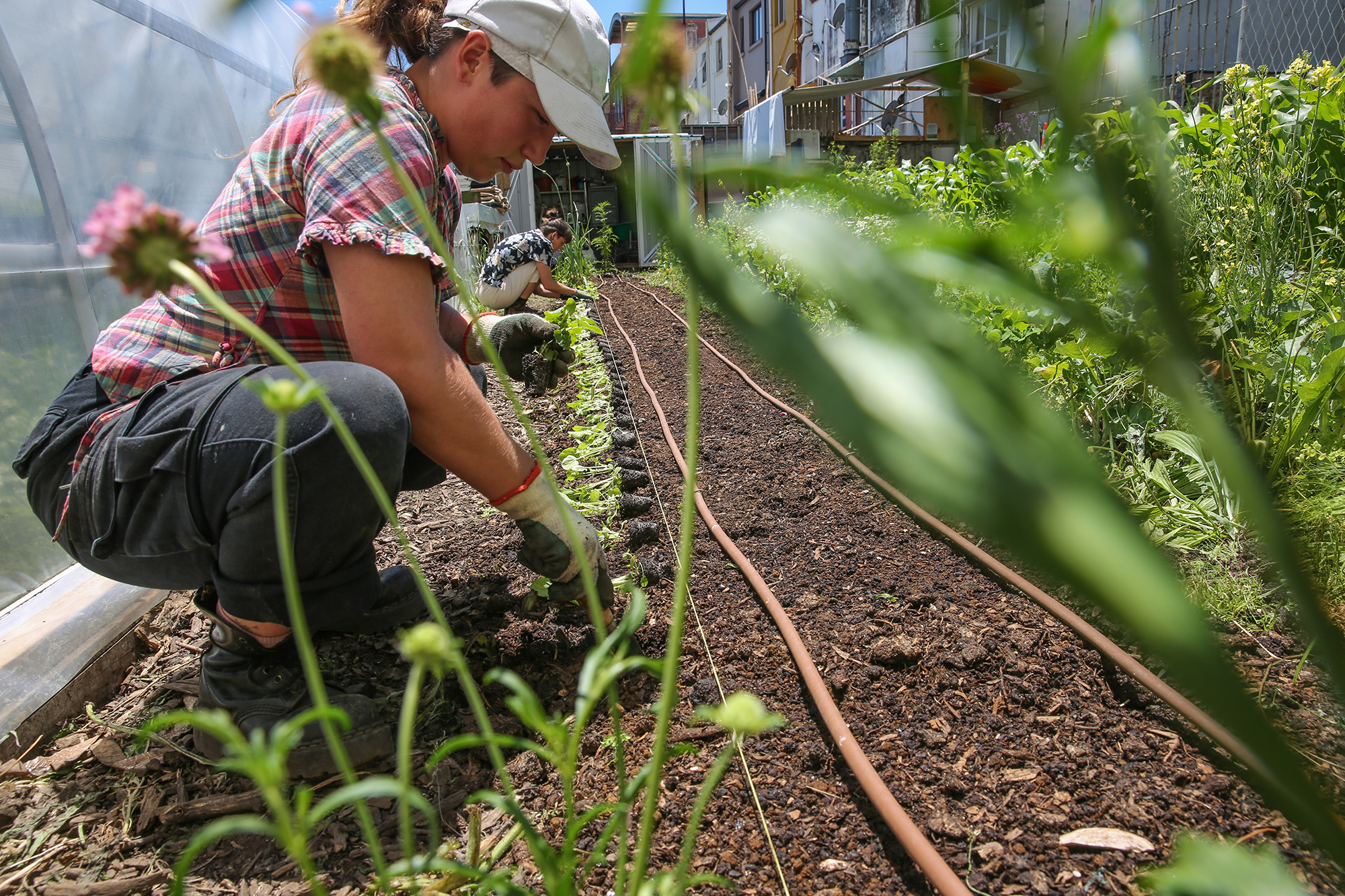
So what’s the future?
As Brisdon-Hall points out, soil fertility only increases if you’re growing regeneratively – without using inputs like synthetic nitrogen fertiliser and glyphosate and by helping to grow the soil microbiology – so it can only get better.
He reckons we need an urban farm on every street corner.
“If you look how the majority of the food in the world is actually produced it is small-scale sustenance farmers that feed the world.”
“My vision is that every single suburb has an urban farm – [We could have them] everywhere,” he says.
“It’s proved to me that it’s entirely possible for cities to produce all their own fresh vegetables; anything that’s a herb or a leaf or fruits are more-than-possible for us to grow in cities and serve the local community.”
Sounds good to me!
Want to know more about OMG and urban farming?
Check out For the Love of Bees and the Urban Farmers Alliance to hear more cool stories on urban farmers changing the world, one street corner at a time.
You can learn more about regenerative agriculture here.
Written by Holly Dove, all photographs by Shujin Liu
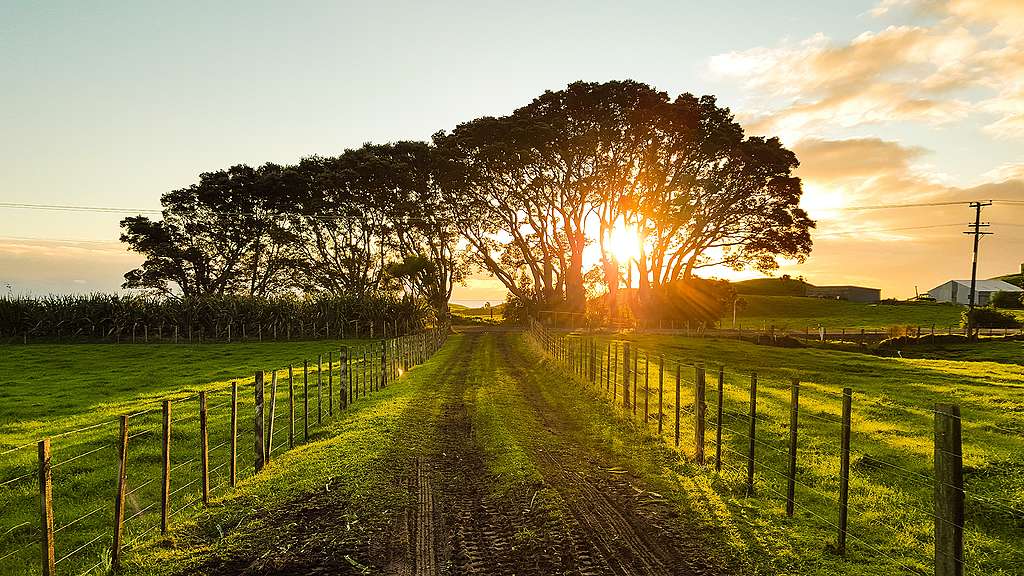
Call on Christopher Luxon to set up a billion dollar fund to transition New Zealand away from industrial to regenerative agriculture.
